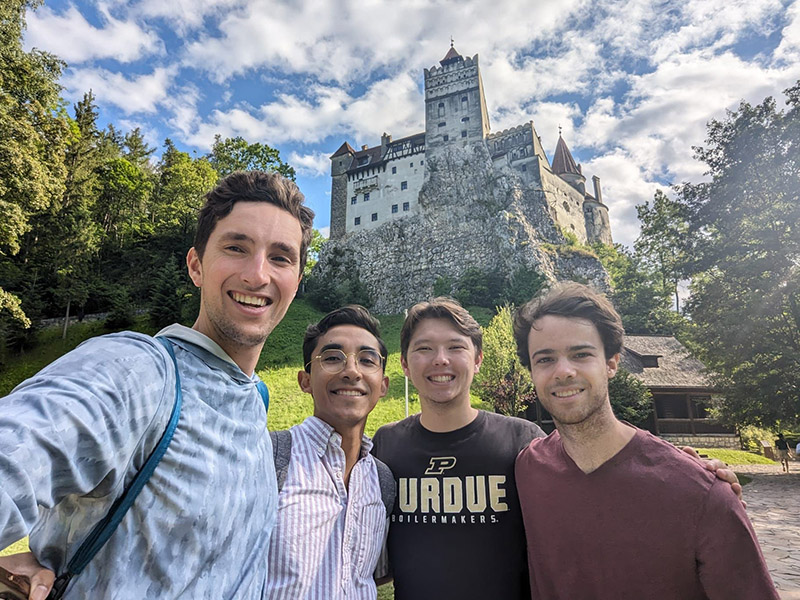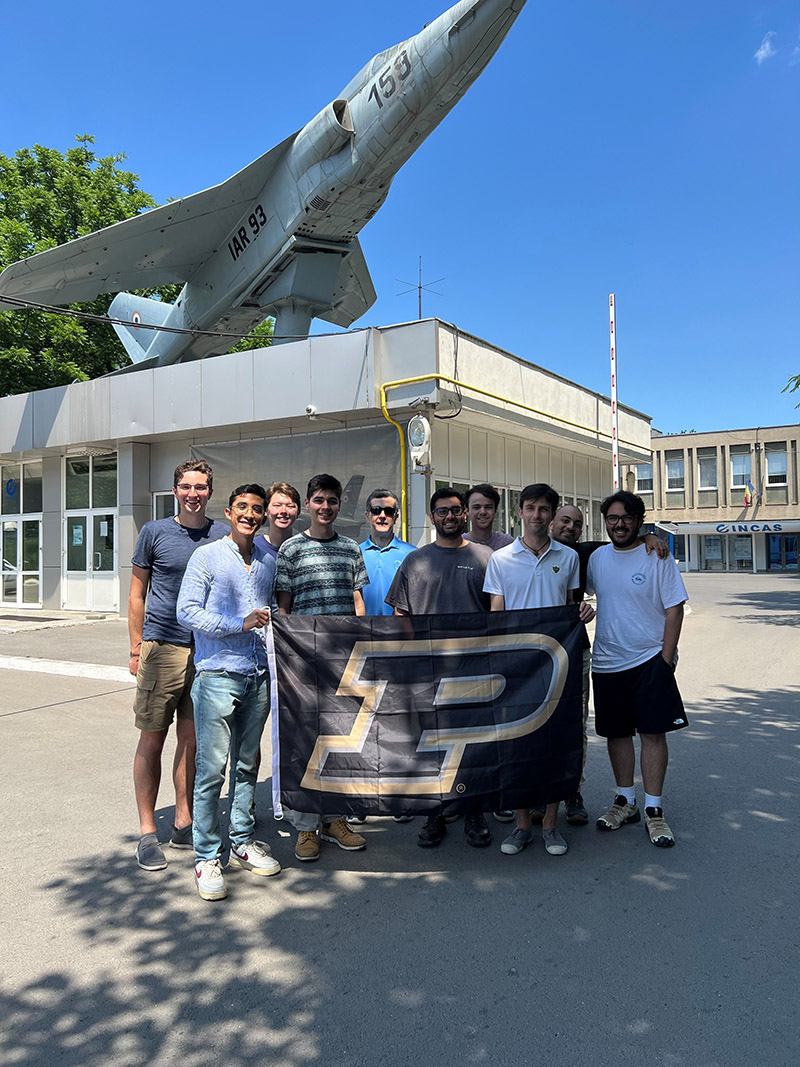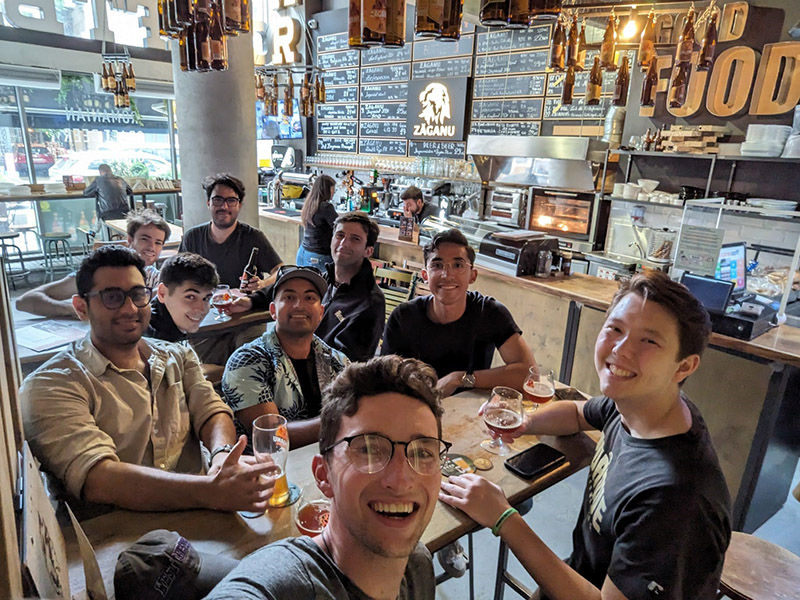Study Abroad Course on Turbomachinery 2 - Bucharest
I had the pleasure of organizing and teaching a Study Abroad course on Turbomachinery 2 in Bucharest, Romania, during May and June of 2024. Romania is a country with a rich cultural heritage, a beautiful language, and a deep connection to engineering excellence, being the home of famous engineers such as Henri Coand, a pioneer in aviation and fluid dynamics. Romania, especially Bucharest, has always held a special place in my heart. Ever since my first visit more than ten years ago, I have felt a strong connection to the city and its people, akin to being at home. I also chose Romania due to the excellent relations with Drs. Valeriu Vilag, Cleopatra Cuciumita, and Ionut Porumbel.
Course Overview

This course provided a unique opportunity to share my passion for turbomachinery while immersing the students in this captivating environment. The course consisted of ten students: four Purdue undergraduate and six Purdue graduate students, plus six Comoti graduate students, all of whom showed remarkable dedication and enthusiasm throughout the program. The course structure was designed to provide a rigorous yet balanced educational experience. Lectures were held from 9:00 AM to 12:00 PM every second day, offering students a comprehensive understanding of advanced turbomachinery concepts, including aerodynamic design and flow physics. In the afternoons, the students were encouraged to apply what they had learned by working on homework assignments and engaging in team-based projects. These activities were crucial for reinforcing the theoretical knowledge gained during lectures and fostering student collaboration.
On the final day of the course, the students presented their group projects, culminating in the knowledge and skills they had developed over the month. The presentations demonstrated a deep understanding of turbomachinery and the student's ability to apply their knowledge creatively to solve complex engineering problems. As an instructor, I have taught many courses over the years, but this class stood out for the quality and thoroughness of the students' work. The project presentations were nothing short of impressive, and I was incredibly proud of the effort and dedication shown by the entire class.
Student Experience
Despite the course's intensity, the students balanced their academic responsibilities with personal exploration. Many of them took full advantage of the weekends to travel and discover the many historical and scenic destinations Romania offers. From the picturesque landscapes of the Carpathian Mountains to nearby countries such as Bulgaria and Turkey, the students immersed themselves in Romania's culture and natural beauty. This balance between rigorous study and cultural exploration is one of the key strengths of the study abroad format, offering students academic growth and a broadened worldview.
The students expressed their appreciation for the opportunities to apply what they had learned in a practical setting, and the hands-on nature of the project work was especially rewarding. The teamwork and collaboration that emerged during the project phase were remarkable, with students supporting one another and pushing themselves to deliver excellent results. Evidently, their engagement went beyond academic performance; they were fully immersed in the subject matter and genuinely interested in the broader applications of turbomachinery.
Personal Experience and Reflections

This study abroad course was a truly rewarding experience. Not only did I have the opportunity to teach a group of highly motivated and talented students, but I also managed to use my time in Bucharest to focus on my well-being. During the first weekend, I joined a local gym and started training regularly, where I met one of the Romanian students. Over the four weeks, I was able to build my fitness to a level I hadn't experienced since my college days. This renewed focus on health and fitness complemented the intellectual rigor of the course, making the experience even more fulfilling.
The instructors and trainers I encountered in Romania were fantastic. My physical trainer, in particular, made a lasting impression on me, helping me stay motivated and pushing me to reach new fitness goals. I believe that this combination of academic engagement and personal growth is what made this study abroad course so special for me. It was not only about teaching and sharing knowledge but also about fostering an environment where both students and instructors could thrive and grow in different aspects of life.
Looking Ahead

As I reflect on this experience, I am already looking forward to organizing the next iteration of this course in the summer of 2026. The success of this year's program has reinforced my belief in the value of study abroad courses, especially in fields like turbomachinery, where students benefit immensely from being exposed to different perspectives and environments. The collaboration, the depth of learning, and the personal growth I witnessed in the students and myself have been genuinely inspiring.
In future courses, I plan to continue building on the structure we established this year, with a balance between lectures, hands-on project work, and opportunities for cultural immersion. I will also seek to integrate more local engineering expertise into the course, drawing on Romania's rich history of engineering innovation. By connecting students with Romanian professionals in turbomachinery and engineering, I hope to provide them with even deeper insights into the practical applications of their studies.
Moreover, the project presentations on the final day of the course will remain a central feature of the curriculum. These presentations allow students to demonstrate their technical knowledge and also help them develop essential soft skills such as communication, teamwork, and problem-solving. This approach clearly enhances their learning experience and prepares them for future professional challenges in the field of engineering.
Conclusion
The Study Abroad course on Turbomachinery 2 in Bucharest was an overwhelmingly positive academic and personal experience. The students showed exceptional dedication, and their projects were a testament to their hard work and growing expertise in the field. The cultural experiences they gained outside the classroom enriched their overall experience and broadened their perspectives.
For me, this course reaffirmed the value of study abroad programs in fostering not only academic growth but also personal development. Romania, with its rich engineering heritage and welcoming atmosphere, provided the perfect backdrop for this course, and I am excited to return in the future to continue building on the success of this program. In the meantime, I look forward to fostering a strong collaboration with the Romanian Research and Development Institute for Gas Turbines Comoti.
Guillermo Paniagua-Perez
